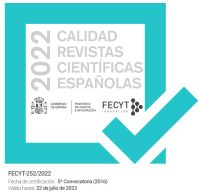Memory mendace and imitation: reflections on Discorsi, II, 5, 2-16
DOI:
https://doi.org/10.5944/endoxa.31.2013.9376Keywords:
Machiavelli, history, Etruscans, Romans,Abstract
In the text known as Discorsi, II, 5, 2-16, esplicita provocazione filosofica e teologica, probably from a Lucretian background, Machiavelli would propose a necessarily favolosa and mendace definition of the histories of the things of the world, founded on an exposition of the category he called oblivione delle cose. This category would have been later used in an appendix attached to Discorsi, II, 4, 34-40, to support the imitatio and to legitimize the existence of a politically true history, useful to present, from il suo ragionare dello stato, an anti-Etruscan and pro-Roman programme of political action.







